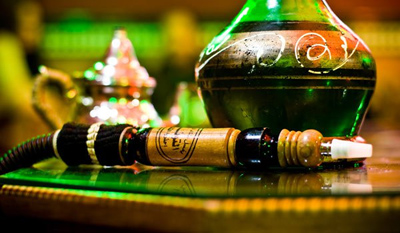 Medical researchers discovered that young adults who regularly smoked hookah water pipes in bars are at risk of developing cancer and other kinds of illnesses.
Medical researchers discovered that young adults who regularly smoked hookah water pipes in bars are at risk of developing cancer and other kinds of illnesses.
Based on the study, elevated levels of cotinine, nicotine, tobacco-based cancer-causing agents and volatile organic compounds (VOC) were discovered in the urine samples of hookah smokers, University Herald reported.
Gideon St. Helen of the University of California's Division of Clinical Pharmacology and the Center for Tobacco Control Research and Education evaluated 55 hookah smokers aged 18 to 48 years old.
Before the week-long study was conducted, the participants provided urine samples. They were then told to smoke the water pipes at their desired hookah bars.
The participants were instructed to not smoke anything else during the duration of the study.
After seven days, the test subjects turned in another set of urine samples for comparison.
Upon examining the "before" and "after" urine samples, St. Helen and his team of researchers immediately noticed a spike in the levels of cancer-causing chemicals.
In all of the participants' samples, nicotine increased by an average of 10.4 times, continine by 3.2 and other kinds of carcinogens by 2.2.
St. Helen said, "This study reports systemic intake of tobacco-specific nitrosamines and VOCs after a typical water pipe-smoking session in a hookah bar setting, thus making the findings generalizable to most water pipe users in the United States."
The researcher added that he and his team decided to conduct the study due to the increasing popularity of the water pipes, according to Reuters.
He wants to warn hookah smokers about the health risks they are exposing their selves to.
He said, "One of the main reasons for doing this study is water pipe smoking is becoming much more popular - especially among younger people and college students."
According to a report by the Center for Disease Control and Prevention, hookah pipes have almost the same health risks as cigarettes.
The charcoal used to burn the pipe's contents produces high levels of carbon monoxide and other cancer-causing agents.
The health organization explained that the water inside the pipes does not effectively purify the smoke from these chemicals. The purpose of the water is to only cool the smoke for smoother inhalation.





Comments
Add new comment